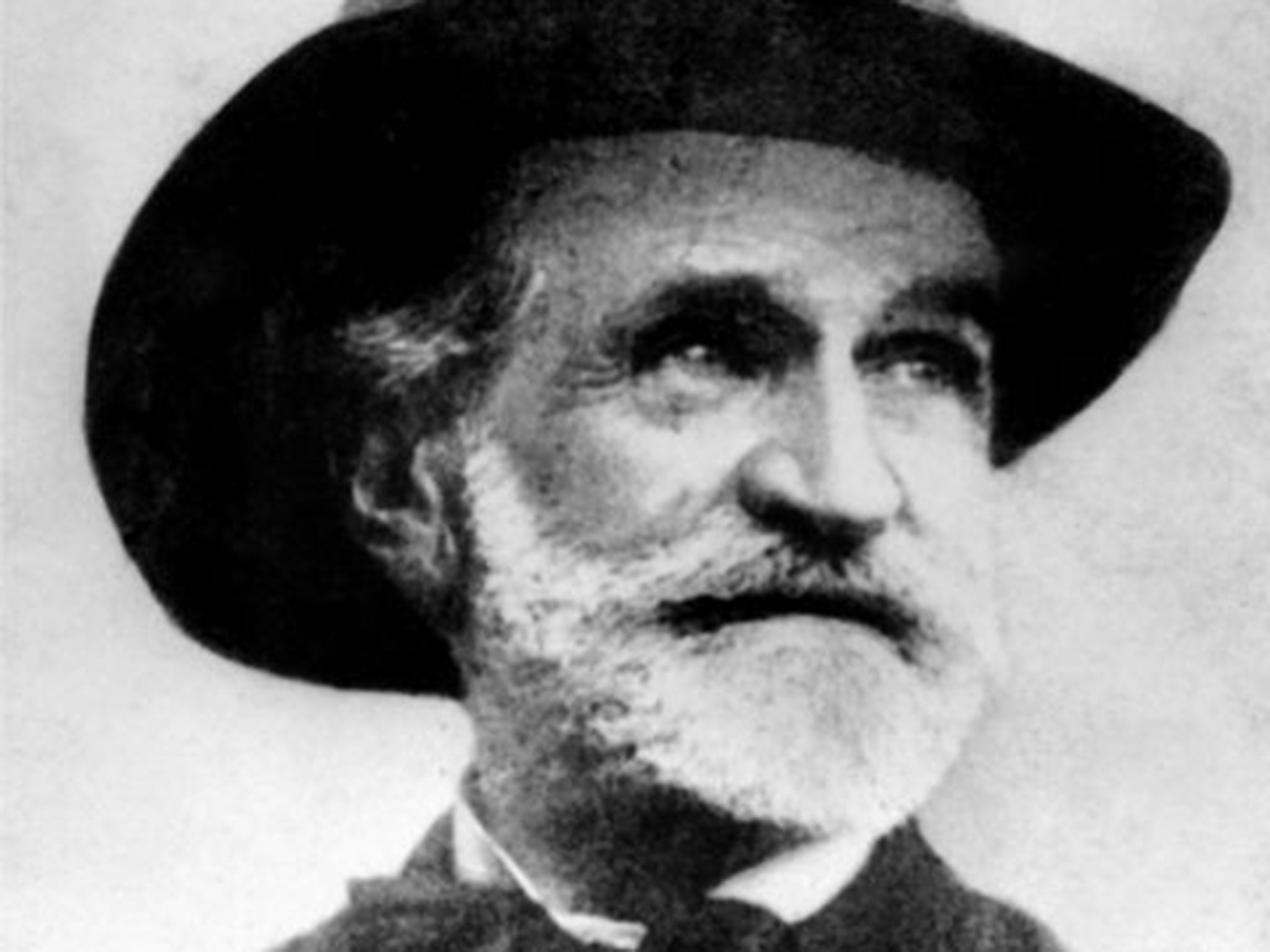Want to relax? Listen to Verdi, scientists say
Research shows the Italian composer's music can lower blood pressure

Your support helps us to tell the story
From reproductive rights to climate change to Big Tech, The Independent is on the ground when the story is developing. Whether it's investigating the financials of Elon Musk's pro-Trump PAC or producing our latest documentary, 'The A Word', which shines a light on the American women fighting for reproductive rights, we know how important it is to parse out the facts from the messaging.
At such a critical moment in US history, we need reporters on the ground. Your donation allows us to keep sending journalists to speak to both sides of the story.
The Independent is trusted by Americans across the entire political spectrum. And unlike many other quality news outlets, we choose not to lock Americans out of our reporting and analysis with paywalls. We believe quality journalism should be available to everyone, paid for by those who can afford it.
Your support makes all the difference.If you want to relax and feel calm then the scientific tip is to listen to the music of the Italian composer Giuseppe Verdi, which is more likely to lower blood pressure than pop, rock or jazz.
According to new research, slow music with a 10-second repetitive cycle has a noticeable calming effect on listeners because it matches the body’s natural 10-second waves of blood-pressure control.
The music of Verdi, along with the slow movements of Ludwig Beethoven’s Ninth Symphony and the arias in Giacomo Puccini’s opera Turandot, are among the most calming pieces of music because they happen to be rich in 10-second cycles that match perfectly the control rhythm of the cardiovascular system, said Professor Peter Sleight, of Oxford University. Blood pressure measurements are sent to the brain after every heartbeat, but because the brain sends control messages back to the heart along two separate nerves operating at different speeds, they arrive out of phase with one another and only come back into phase once every 10 seconds, he explained.
Music with a similar 10-second rhythm is therefore likely to have a calming influence because it exploits this natural cycle controlling blood pressure, Professor Sleight said. He will describe the study today at the British Cardiovascular Society Conference in Manchester. “When we picked up some music by Verdi it was quite clear that he seemed to know instinctively about this when he composed his 10-second arias,” Professor Sleight told The Independent.

Studies carried out on 12 musically trained volunteers and 12 untrained individuals demonstrated that certain kinds of slow music were particularly good at helping to control blood pressure – in contrast to jazz or fast classical compositions, he said.
“Music is already being used commercially as a calming therapy but this has happened independent of controlled studies into is effectiveness,” Professor Sleight said.
“Our research has provided improved understanding as to how music, particularly certain rhythms, can affect your heart and blood vessels. But further robust studies are needed, which could reduce scepticism [about] the real therapeutic role of music.”
It is not just music that has a calming influence on blood pressure. Professor Sleight and his colleague Luciano Bernardi found that the prayer Ave Maria, when spoken in Latin, also has a 10-second rhythm when it is read out 50 times, as it is in some Catholic services in Italy.
Join our commenting forum
Join thought-provoking conversations, follow other Independent readers and see their replies
Comments